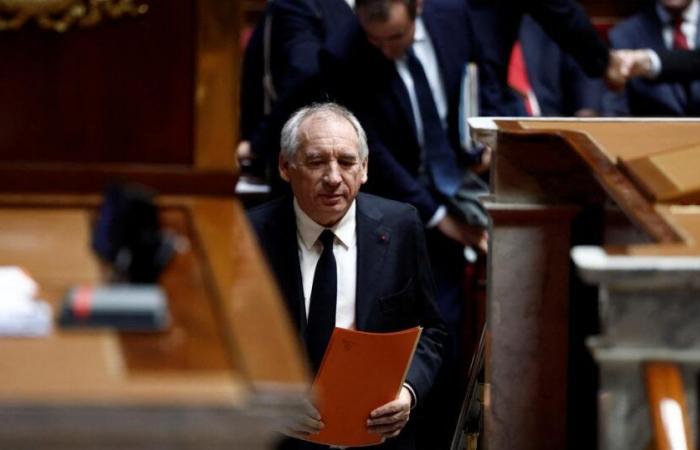”
data-script=”https://static.lefigaro.fr/widget-video/short-ttl/video/index.js”
>
“This debt is a sword of Damocles over our country and our social model,” argued the Prime Minister during his general policy speech on Tuesday.
Nearly 2,450 billion euros in a quarter of a century: this is the spectacular increase in French public debt, between the beginning of 2000 and the end of last year. A colossal sum, which strangles the public finances of France, and limits the room for maneuver of successive governments. A sign of the importance of these issues, the new Prime Minister, François Bayrou, addressed this subject from the first minutes of his general policy speech, delivered this Tuesday to the National Assembly.
“Since the war, France has never in its history been as indebted as it is today”worried the head of the executive. And the latter continues with a quick summary of the crazy surge in French debt since the 2000s. Under Jacques Chirac it began “a descent that nothing seems to be able to stop”he mentioned. Subsequently, debt accelerated, increasing by “25 points of domestic product”under Nicolas Sarkozy, then «10 points» under François Hollande, and «12 points» since 2017. “I affirm that all the so-called governing parties have a responsibility for the situation created in recent decades. And I affirm that all the opposition parties, constantly demanding additional spending, have also danced the fatal tango which has led us to the edge of this precipice.then criticized the Prime Minister.
53.2 points of GDP and 2,450 billion euros more in a quarter of a century
The figures communicated by INSEE speak for themselves. Established at 60.5% of GDP in the first quarter of 2000, France’s debt remained below 69% until 2007. The financial and banking crises then followed, causing the French rate to soar. : this jumped from 66.8% at the start of 2008 to 91.2% at the start of 2012. A surge of 25 points in GDP, as announced by François Bayrou. The arrival of François Hollande continued this trend, with debt increasing by exactly ten points between this period and mid-2017 – 101.2%. And, since the election of Emmanuel Macron, the debt has evolved in two stages. First, a stabilization, then a gradual decline, bringing the rate down to 98.2%, at the end of 2019. Then, an explosion, then a stabilization at a very high level, while the State increased government spending. “whatever it costs” to protect France in the face of the crises affecting the country.
-Like his short-lived predecessor Michel Barnier, François Bayrou now wishes to tackle this Everest which threatens the future of France. “This debt is a sword of Damocles over our country and our social model”he pleaded. The figures are, it is true, dizzying: the debt crossed the threshold of 1000 billion euros in 2003, 2000 billion ten years later, and 3000 billion in 2023. An increase of 2058 billion euros in 17 years particularly worrying. It is an understatement to say that the task promises to be arduous. The mayor of Pau wishes to tackle this, in particular by increasing “significant savings”as well as a “powerful movement for public action reform”. The budget still needs to be voted on, and quickly.
”
data-script=”https://static.lefigaro.fr/widget-video/short-ttl/video/index.js”
>
Belgium
Related News :
